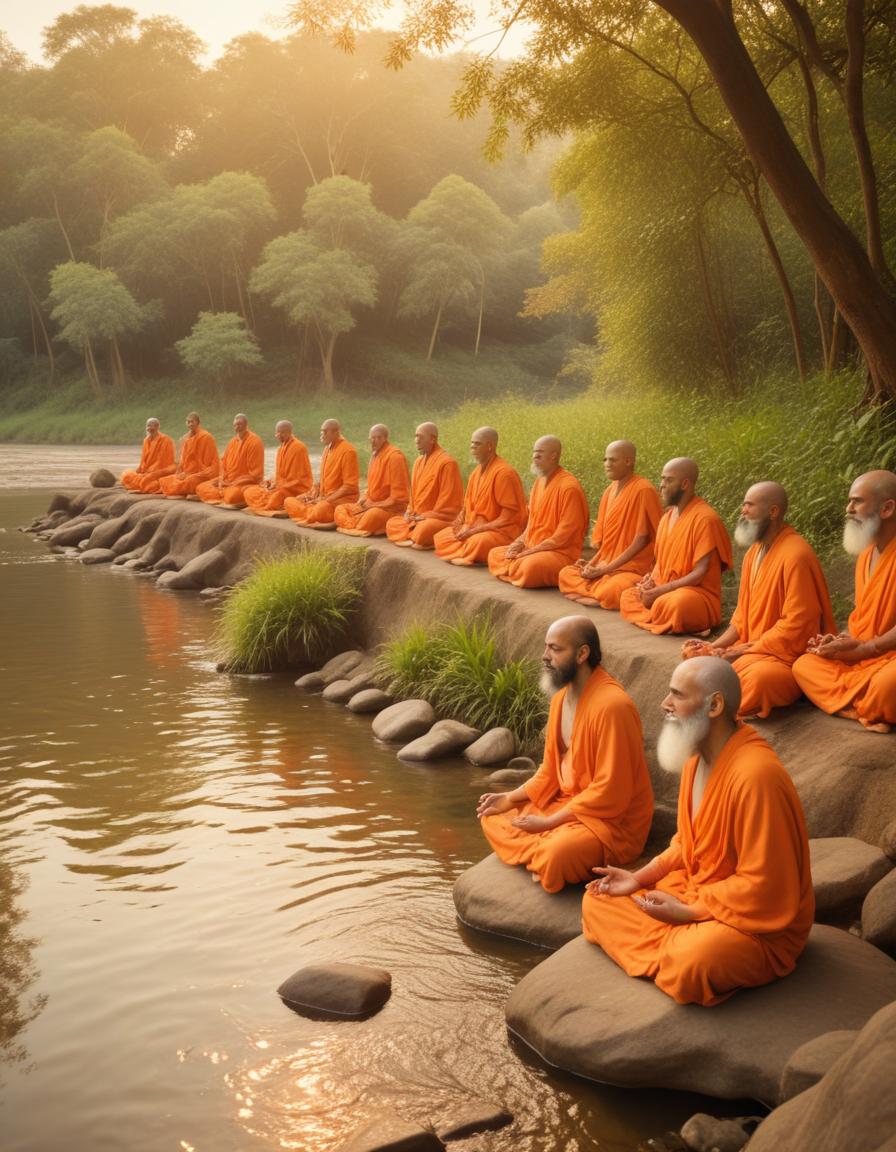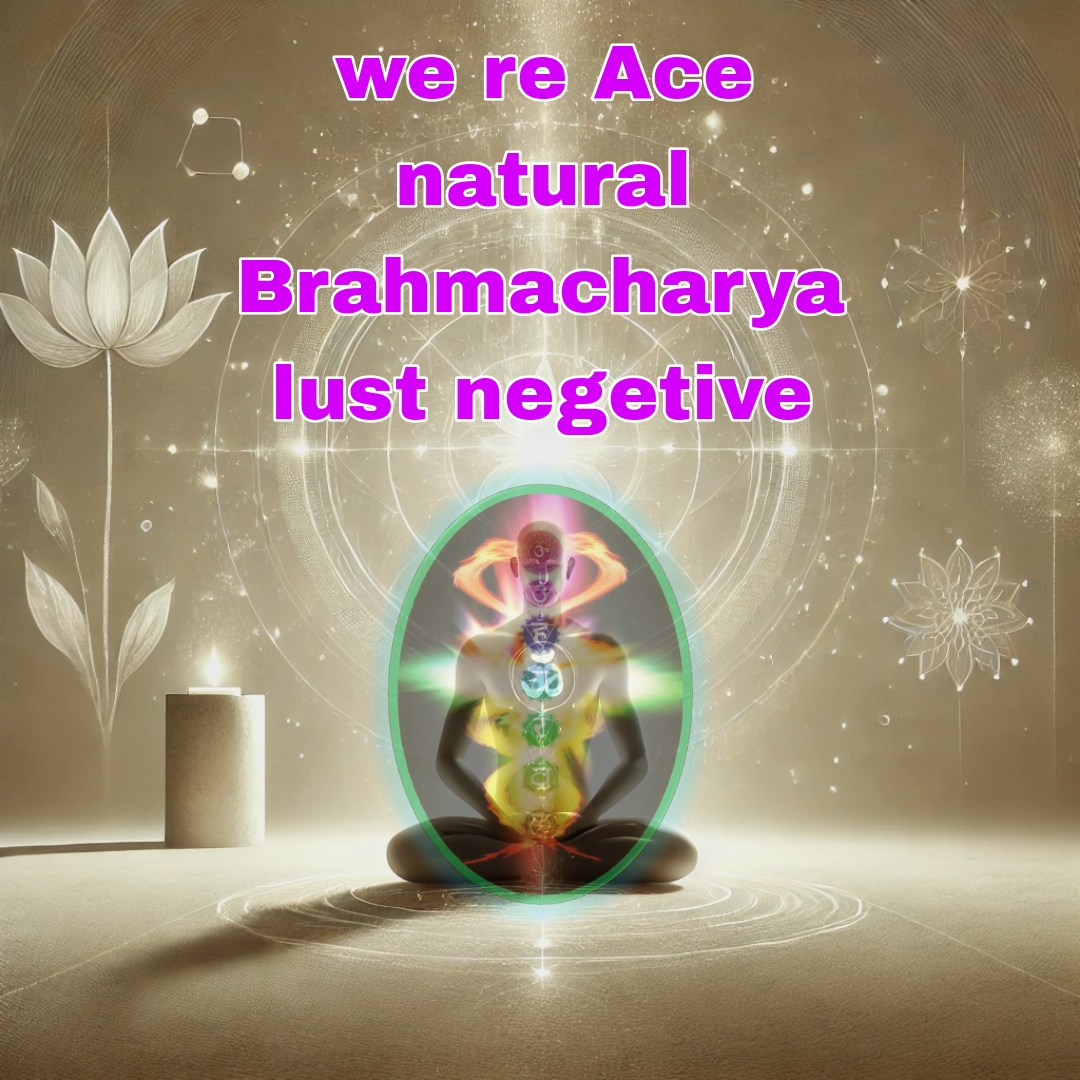As someone who identifies as an ace(asexual) and lust-negative, the concepts of celibacy, abstinence, and the absence of sexual attraction resonate on a personal level.
It’s not uncommon for people to conflate or compare different ideas around celibacy and asexuality,
and one such comparison often arises with the spiritual practice of Janam Jaat Brahmacharya.
This term, deeply rooted in Indian spiritual traditions, refers to someone who is celibate by birth, living a life free from sexual desire.
While this might sound similar to asexuality, there are key differences.
As someone who naturally doesn’t experience sexual attraction, I’ve found it helpful to explore these concepts and understand where they overlap and where they diverge.
Let’s try to find out difference between someone who identifies as asexual.
What is Janam Jaat Brahmacharya?
In spiritual traditions, particularly those rooted in Indian philosophy, Janam Jaat Brahmacharya refers to a state of lifelong celibacy that is believed to be inherent from birth.
The term itself translates to “by birth” (Janam Jaat) and “celibacy” or “self-restraint” (Brahmacharya).
Those who are considered Janam Jaat Brahmacharis are thought to naturally live without sexual desire or activity, often dedicating their lives to spiritual growth and higher purposes.
Figures like Lord Hanuman from Hindu text are held up as examples of Janam Jaat Brahmacharis, individuals who never experience sexual urges and devote themselves fully to their divine or spiritual missions but with that it also indicates presence of asexuality and also there acceptance and honoured with respect in society, but the modern terms where not in ancient times, so we can consider Brahmacharya as a Broad term
Whether in this lustful world many have faced injustice and also treated badly as a disease due to degraded perception and lustful world.
For them, celibacy is seen as a path to spiritual purity and strength, a way to transcend worldly desires and focus on higher goals.
What is Asexuality?
Now, from the perspective of an asexual person, asexuality is quite different.
It’s not about taking a vow or committing to celibacy for any spiritual reason.
It’s about naturally not experiencing sexual attraction.
It’s who I am, not something I consciously choose or practice.
For someone who’s asexual, the absence of sexual attraction is just another way of being, much like how some people experience attraction and others don’t.
Asexuality doesn’t necessarily mean avoiding relationships altogether.
It simply means that the typical sexual desire that drives many people isn’t present for us.
Some ace individuals might be in romantic relationships, some might not, but the key factor is that sexual attraction isn’t a part of our experience.
The Overlap with No Sexual Desire and Brahmacharya
At a surface level, there’s an obvious similarity between Janam Jaat Brahmacharya and asexuality neither involves sexual desire.
Whether it’s a Janam Jaat Brahmachari who is celibate by birth or an asexual individual who doesn’t experience sexual attraction, both live without the drive for sexual relationships.
As someone who is asexual and lust-negative meaning I don’t just lack sexual attraction but actively dislike the concept of lust it’s easy to understand why these ideas might be grouped together.
Both reflect a lifestyle free from sexual desire, something that many in our highly sexualized world might find difficult to understand.
The Differences is a difference and comparison Spiritual Discipline vs. Innate Orientation
But despite the overlap, the key difference lies in the why and how behind this lack of sexual desire.
1. Innate vs. Spiritual Discipline:
– For a Janam Jaat Brahmachari, celibacy is tied to spiritual purity and a higher purpose. It’s often seen as a divine gift or a form of self-discipline meant to channel energy toward spiritual goals. This is a very conscious, even sacred practice.
– For me, as an asexual person, there’s no spiritual goal or discipline involved. It’s simply the way I am. I don’t experience sexual attraction, not because I’ve chosen to abstain or because I’m aiming for spiritual purity, but because it’s just not part of my identity but would like to join the path of the spiritual journey.2. Choice vs. Nature:
– The concept of Brahmacharya often involves a conscious decision to remain celibate, particularly for those who adopt Brahmacharya later in life. While a Janam Jaat Brahmachari might be considered naturally celibate from birth, the broader practice of Brahmacharya requires deliberate abstinence.
– Asexuality, on the other hand, isn’t a choice. It’s a natural orientation. I didn’t wake up one day and decide that I would live without sexual attraction it’s simply the way my mind and body work. There’s no conscious effort required to “maintain” asexuality. It just is.3. Cultural and Spiritual Significance:
– In many cultures, particularly those influenced by Indian spiritual traditions, Brahmacharya is held in high regard. It’s often associated with purity, discipline, and even divine power. Someone practicing Brahmacharya might be revered for their ability to abstain from sexual desires.
– Asexuality, however, is often misunderstood. In today’s society, being asexual can sometimes be seen as strange or “lacking,” and there’s still a long way to go in terms of understanding and acceptance. Many people don’t realize that sexual attraction isn’t universal and that it’s perfectly okay not to experience it.
A Personal Reflection on Celibacy and Asexuality the reason to linking it as a broad term
As an asexual, lust-negative individual, I find the idea of. Janam Jaat Brahmacharya intriguing.
In some ways, it mirrors my own experience of not feeling sexual attraction, but the motivations and cultural context behind it are vastly different.
For me, there’s no deeper meaning or spiritual pursuit behind my lack of sexual desire it’s just who I am. I live my life free from the pressures of lust or sexual expectations, not because I’m seeking enlightenment, but because that’s my nature.
There’s something freeing about understanding that my experience is valid, whether or not it fits into traditional spiritual or societal norms.
I don’t need a spiritual reason to explain my lack of desire, and I don’t have to frame it as something I’m “giving up” for a higher purpose.
Asexuality is just as natural and valid as any other sexual orientation.
Respecting the Spectrum of Human Experience
At the end of the day, Janam Jaat Brahmacharya and asexuality both challenge the assumptions that sexuality is universal.
Whether someone is celibate for spiritual reasons or naturally doesn’t experience sexual attraction, the important thing is to recognize and respect the diversity of human experiences.
For me, the absence of sexual desire is an integral part of who I am, not something that needs to be explained or justified.
Understanding the difference between spiritual celibacy and asexuality helps clarify that there’s no one “right” way to live without sexual attraction
whether it’s a conscious spiritual practice or simply a natural orientation, both are equally valid paths.
Its up to the Individual which path he wants a Brahmacharya can be a non asexual too but his nature and orientation remains same,
A Janam Jaat Brahamacharya might be an ace but not all ace re following the Spiritual path.
About The Author
I am An IndoNepali ace aromatic lust negetive identify my self Natural Brahmacharya





